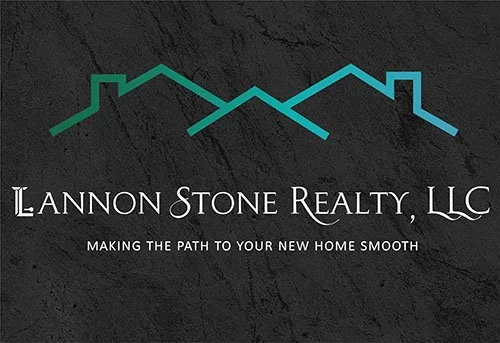Pets and renter’s insurance: Why you need it
Shana Whitmarsh November 20, 2019 in Homeowners Insurance
Dogs are beloved family-members in about 85 million U.S. homes. According to Zillow’s 2018 Consumer Housing Trends Report, 30% of renters have dogs. However, the Insurance Information Institute’s 2018 Insurance Pulse Survey found that only 46% of renters in the U.S. have renters insurance.
Renters have an additional responsibility to make sure they are covered in the event of an accident or dog bite in their homes because they’re living in dwellings they don’t own. Simply put, if you’re renting, you should research the coverages and limits in your renters insurance policy to make sure you have adequate pet liability coverage for your dog breed and living situation.
If you have a renters insurance policy, it may already include some protections for pets such as liability coverage, which pays medical expenses and covers your legal costs up to the limit of your policy in the event that your dog bites someone. If your dog bites another dog, your liability coverage may also pay the vet expenses for the other dog. Your renters insurance liability coverage won’t protect you if your dog damages personal property that you own. However, some renters insurance policies include coverage for expensive personal property, such as expensive pet accessories, so if your pets’ designer dog dish is stolen or damaged, it may be covered.
What is the difference between pet insurance and renters insurance?
Renters who are dog owners should consider having a pet health insurance policy and a renters insurance policy with pet liability coverages because they serve different yet important purposes.
Pet insurance – Pet insurance plans help you pay for unexpected pet healthcare expenses, and, depending upon the coverage options you choose, it can also pay for pet wellness expenses.
Renters insurance – Renters insurance with pet liability coverage can protect you from being personally liable for accidents and damages or personal injury caused by your pets.
How can renters insurance protect you and your pet?
A renters insurance policy pays for damages to your rented home and other people and their possessions when you or your pet are at fault. It also pays medical expenses when a guest is injured in your home, and it pays for extra living expenses if you can’t live in your home after a fire, flood, storm or other disaster. Some policies include liability coverage for injury and damages caused by you or your pet to other people outside your home.
An analysis of homeowners insurance data by the Insurance Information Institute found that there were 17,297 dog bite claims in the U.S. in 2018, and the average cost per claim was $39,017. Because over half of dog bite injuries occur in situations where the pet is familiar to the people it comes into contact with, it’s no wonder many landlords prefer renters to have a renters insurance policy. With policies starting at about $15 per month or $188 per year, having a renters insurance policy with pet liability coverage makes good financial sense. It could protect you from a possible lawsuit in the event of an accident or injury where you or your pet are at fault.
If you have a renters insurance policy that includes liability or damages coverages for your pets, it’s a good idea to check for coverage limits under certain conditions, such as whether an incident occurs in your rented home or outside it. You should have enough coverage on your renters policy to cover your personal possessions if they are lost, damaged or stolen and to protect you from being sued in the event that your pet injures someone or causes property damage. Your landlord may require that you purchase a renters policy as a condition of your lease or rental agreement.
Cost of renters insurance
The average cost of renters insurance is $185 per year or as little as $15 per month, but in the event of an accident or disaster, the benefits can save you thousands of dollars in damages. Considering that the average cost of a dog bite claim is almost $40,000 and about 1 in 5 people who are bitten by dogs require medical attention, it pays to have a renters policy with pet liability coverage if your dog causes damages or bites someone.
Because your renters policy won’t cover your pet’s healthcare costs, you should also consider getting a pet insurance policy. The average annual cost of pet insurance in 2017 was $516, and pet insurance for dogs costs more than for cats. Costs vary by type of animal.
There are different plans available with most falling into three categories: basic plans, comprehensive plans and pet wellness plans. Most basic plans cover vet procedures and treatment for accidents and illness such as cancer. Most of the basic plans reimburse for covered vet expenses, and many of them have caps on total reimbursements for a policy term. Comprehensive plans have more expensive premiums, but they include coverage for X-rays, prescriptions, office visits and lab fees, often with a lower deductible. Pet wellness plans reimburse for pet physicals, vaccinations and heartworm treatments.
If you have an expensive show dog, you may want to consider getting theft and life insurance policies for them so that you’re reimbursed if they’re stolen or they die in transport to an event. As a general rule, most pet insurance policies will cost less when your dog is young and the price will go up as he or she ages.
Make sure you and your pet are covered
If you have a renters policy with pet coverages, it pays to read the fine-print to see exactly what’s covered. You may decide to add additional pet insurance to your policy or to purchase a separate pet liability policy if your policy doesn’t cover everything you want it to.
Some policies only cover accidents and damages that happen in your rented home, not outside it. Others won’t cover dog bites, or they won’t cover dog breeds on their “bad breed list.” If your coverage is too limited, it may make sense to switch insurance companies or purchase an umbrella policy for additional liability coverage. Some insurance companies won’t sell you an umbrella policy if your dog is on the “bad breed list,” but some insurance companies have recently begun to offer canine liability policies to insure any dog breed.
Regardless of the type of policy you purchase, you can expect a waiting period of up to 48 hours for accidents and two weeks for some conditions to up to a year for others. Don’t wait until after something happens to purchase a policy.
What won’t renters insurance cover for pets?
The pet damages and liability coverages in your renters policy may not cover you for certain incidents or your dog breed may be denied, depending upon the state and the insurance company. Your renters policy liability limits may be significantly reduced or not applicable at all if you have one of the dog breeds on a banned breed list. You may want to purchase a personal umbrella policy or pet liability insurance for extra coverage.
Personal Umbrella Policy (PUP): Umbrella policies are designed to provide liability coverage for you and your dog where your regular policy won’t or when your renter’s policy limits are exhausted. A personal umbrella policy gives you coverage above and beyond your renters policy, such as if your dog bites someone outside your home.
Pet liability insurance: If you have a rottweiler or other breed that’s considered difficult to insure, you may need to purchase pet liability insurance instead of an umbrella policy. A pet liability insurance policy gives you additional liability coverage that your renters insurance may not include, such as coverage for dogs with a history of aggression, off-duty police dogs or extended off-premises coverage.
Why are some dogs considered more of a risk to insurance companies than others? If your dog has bitten someone, it is considered by insurers to be more of a risk than if it hadn’t, regardless of the breed. Other dogs, even if they haven’t bitten anyone, are thought of as dangerous if they are certain breed types.
These dog breeds usually come from a list from a study commissioned by the U.S. National Center for Injury Prevention and Control in 2000, which focused on dog bites that caused death. The study lasted for 19 years and found that there were about 12 dog bite fatalities per year in that period and most of the bites came from pit bulls, rottweilers and mixed breed combinations of those breeds.
Here are all the breeds on the study list, plus a few more that we found from different lists from insurance companies:
Pit Bull
Doberman Pinscher
Rottweiler
Chow Chow
Great Dane
Perro de Presa Canario
Akita
Alaskan Malamute
German Shepherd
Siberian Husky
Wolf Hybrid
Saint Bernard
Bottom line
With dogs being such popular pets in the U.S., it’s not a surprise that dogs can sometimes be a liability. That’s why it’s important to make sure you have adequate pet damages and liability coverages if you’re renting your home.
If you are looking to cover your pet’s health and medical costs, buy a pet insurance policy in addition to your renters policy, which you should review to ensure that you are properly covered for pet-related damages and liability. If you have a “dangerous” dog breed, consider getting an umbrella policy to cover the gaps in your renter’s policy or a pet liability policy. With the right coverage in place, if something happens later, you’ll be glad you did your homework.
Article provided by
David Lafferty
Bankrate, Inc.
100 5th Ave., 16th Floor | New York, NY 10011
d.lafferty@bankrate.com
Bankrate.com
How we make money
Bankrate.com is an independent, advertising-supported publisher and comparison service. Bankrate is compensated in exchange for featured placement of sponsored products and services, or your clicking on links posted on this website. This compensation may impact how, where and in what order products appear. Bankrate.com does not include all companies or all available products.
The Luettgen Group is not affiliated with Bankrate.com and was not paid for this article. The Luettgen Group allowed Bankrate.com to post their article and advertising for use of article for The Luettgen Group readers. In exchange Bankrate.com has advertised on this site. The Luettgen Group does not promote or guarantee any information provided by Bankrate.com







